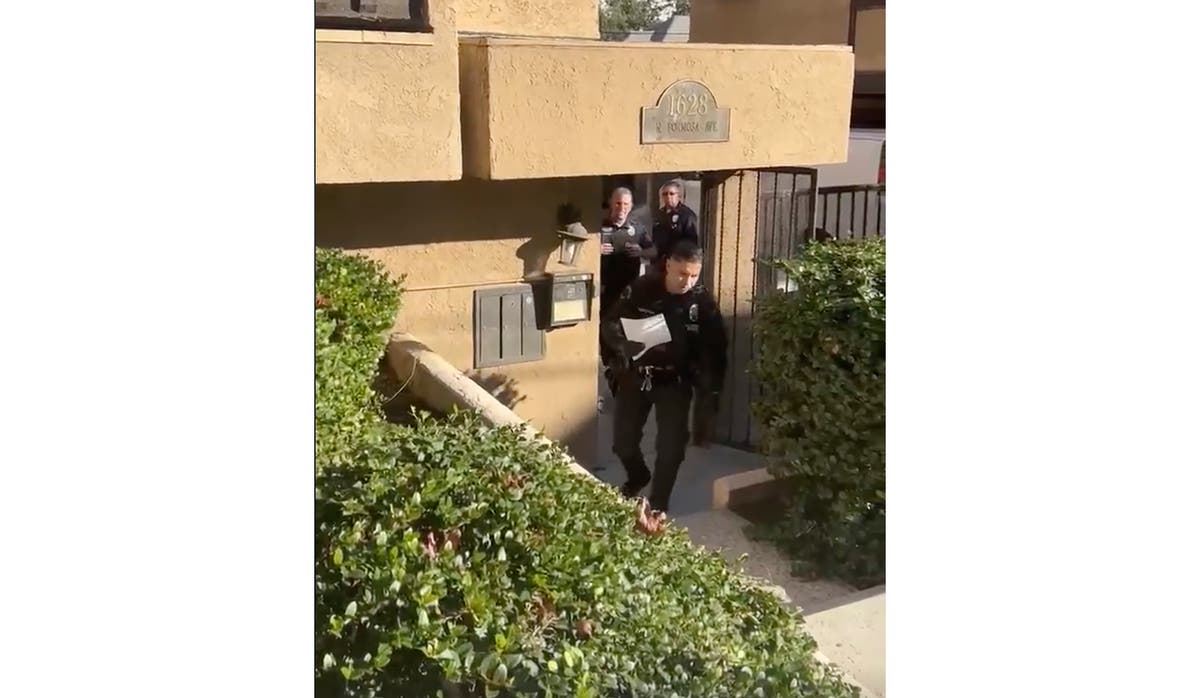A judge has ordered the Los Angeles Police Department to get rid of photos of legal documents that were allegedly taken during an unannounced raid on the home of an attorney for a Black Lives Matter activist
A judge has ordered the Los Angeles Police Department to get rid of photographs of legal documents that officers allegedly took during an unannounced raid on the home of an attorney representing a prominent Black Lives Matter activist.
The attorney, Dermot Givens, said roughly a dozen Los Angeles police officers descended on his townhouse on Tuesday, ordering him to stand outside as they executed a warrant.
When he went back inside, Givens said he saw an officer photographing documents left on his kitchen table related to a lawsuit filed against the department on behalf of Melina Abdullah, the co-founder of the Los Angeles chapter of Black Lives Matter.
Abdullah has alleged officers violated her civil rights in 2020 by forcing her out of her home at gunpoint after receiving a hoax call about a hostage situation there.
The papers photographed by police contained “portions of Mr. Given’s case file, and potentially attorney work product” related to Abdullah’s case, according to an application in Los Angeles County Superior Court requesting that police destroy or return the materials and provide a copy of the warrant used to justify the search.



Are they not required to provide a copy of the warrant when they execute it?
The judge may be asking for a copy, rather than asking one be provided to the lawyer… But like, there should be a record of that, the judge’s clerk should just be able to pull it up.
For that matter, if it was for the lawyer… the clerk should be able to just, you know, give a copy.
They are definitely supposed to have one ready to go when they knock or whatever. Usually, they’ll try to avoid handing it over until you ask to see it.
IANAL, but some states specifically state you can refuse entry unless they present the warrant. Other states advise you to let them do whatever or risk facing charges (obstruction, etc).
In any event, get their names and badge numbers so you can sue. ALSO, the warrant should state what it is they’re looking for, which should in theory limit their search. For instance, if the warrant is to search your home looking for a stolen motorcycle (or whatever) they cannot look in your kitchen cabinets, bedside table, etc, because no motorcycle could possibly fit in those spaces. “Hey we found a pound of cocaine in a shoe box while looking for a motorcycle” would be thrown out of court. Doesn’t keep them from getting a new warrant and coming back, though.
Perhaps it is a copy of the information, including source, that led to the signed warrant that would be presented to the person being served?
Disturbingly enough, no.